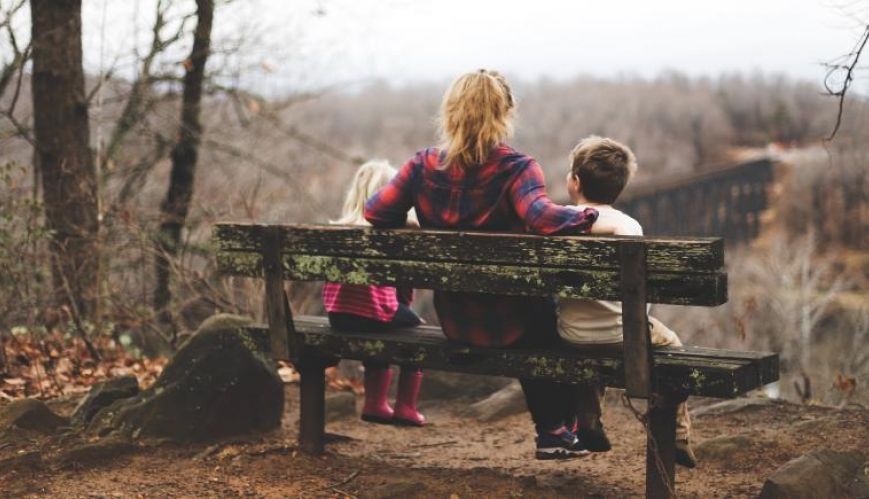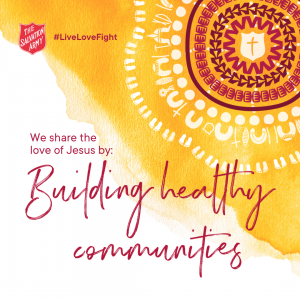Behind closed doors

Behind closed doors
10 May 2021
Photo: Benjamin Manley
May is Domestic and Family Violence Prevention Month, which is held annually to raise community awareness of domestic and family violence’s social and personal impacts and the support available to those affected. The key aims also include promoting a clear message of zero tolerance of domestic and family violence and encouraging people who perpetrate violence to take responsibility for their abusive behaviour and seek support to change.
Domestic and family violence can affect anyone. Remember when you met someone and were falling in love? Your heart started to race when that person walked into the room and you couldn’t help but walk around in those heady, early stages of romance with a grin on your face. You felt lucky to have found the one.

Somewhere along the way though – and you may not even know when it began – a pattern of controlling abuse emerges in your relationship and you find yourself alone, without access to your finances, frightened, hurt and feeling worthless.
I am a family violence program manager in regional NSW, and every day I see the trauma faced by victim-survivors when they reach our service, and their extraordinary courage to rebuild their lives.
The enormity of domestic and family violence and its impacts on ordinary Australians, and in every country around the world, can be overwhelming. Domestic and family violence is a crime often hidden behind closed doors. In Australia, 1.5 million women and 528,800 men have experienced physical violence from a partner from the age of 15. More than one million Australian children are affected by domestic and family violence. Seven out of 10 women murdered in Australia are victims of domestic and family violence and these murders happen almost weekly in Australia. They are staggering statistics and when you really think about it on a personal level, the chances are it is happening to someone you know.
Myths
There are many myths about domestic and family violence that include what domestic violence is and why people stay in the relationship. For this reason, it is important to understand that this violence is a pattern of abusive behaviour through which a person seeks to control and dominate another person. Domestic violence does not take the form of a single incident. It is ongoing behaviour that gradually undermines the victim’s confidence and ability to leave the violent person. The severity and frequency of violence often escalate over time.
The perpetrator can use many tactics to manipulate and control:
- Physical abuse. This could include hitting, shoving, kicking, choking, biting or hair-pulling. This could also include forced ingestion of drugs or alcohol. It includes reproductive abuse when people are prohibited from taking contraception and intimidated into keeping a pregnancy or forced to terminate one.
- Sexual violence. This could include forced or coerced sex acts, rape or sexually demeaning treatment.
- Emotional abuse. This could include put-downs, name-calling, blaming, criticism and other efforts to diminish a person’s self-worth.
- Psychological abuse. This could include threats of violence toward a partner, family member, pets or friends; keeping a partner from socialising or going to work or school. Threatening suicide or self-harm to control is another form of this abuse.
- Financial abuse. This could include controlling a partner’s finances or restricting access to financial resources.
- Spiritual abuse. This could include denying someone access to religious services and/or coercing them to convert to a particular faith.
Yes, it is confronting, but if I know anything from working for the Salvos for the past five years, it is that we are a collective of people who are committed to fighting hardship and injustice. And for that reason, I would like to challenge you to think about if you have ever thought family violence is a personal problem? Or shared some ill-informed opinions that can be detrimental to survivors of domestic violence?
Common responses
Here are five common responses that are not constructive and could be harmful:
- “Why don’t you just leave?”
This is the most common question survivors are asked, and the one behind which immense pain is hidden. Leaving an abusive relationship isn’t as simple as walking away. There are many things a victim must consider before taking this step such as their children, finances, housing and more. Leaving an abusive relationship is the most dangerous time for a victim.
- “Relationships aren’t perfect. All couples/families have problems.”
Absolutely, no relationship is perfect. However, abuse, whether physical or emotional, is never part of a healthy relationship. This isn’t a couple’s problem, but rather a one-sided, hurtful infliction of power and control. A victim who is in an abusive relationship isn’t seeking perfection, but rather respect, dignity and a life free of abuse.
- “How can you let them treat you like that? I would never let this happen to me.”
Another harmful response is to blame and stereotype the victim. Domestic violence is a global issue and is not bound to any particular types of people. It can happen to anyone.
- “They always seem so nice though! They really don’t seem that way to me.”
Victims of domestic violence are often embarrassed by what is happening and this is another phrase that doesn’t help the victim’s suffering. Perpetrators of domestic violence aren’t usually abusive in public and are perfectly pleasant to everyone else. They can be very charming and well-liked by others, which can be blinding.
- “I never liked them anyway. We all told you something was up.”
Even though you may have sensed something was wrong, abuse can build over time for a victim. Perpetrators of abuse don’t suddenly become abusive; it’s a slow, blinding and complex process and can be hard to believe.
Appropriate responses
If you find yourself in a situation where someone experiencing domestic and family violence has come to you for help, here are some appropriate responses:
- If the person is in immediate danger: Remain calm and remember that safety should be a top priority. If the abuser is an immediate concern, call 000.
- Be supportive.
These statements can assist when speaking with someone you are trying to help and support:
- You are not alone.
- You deserve to be safe – your children deserve to be safe.
- I’m so sorry that is happening to you.
- I’m glad you told me; I would like to help you.
- The abuse is not your fault – you are not to blame for someone else’s violence.
- You have the right to make your own choices, including the decision to leave an abusive situation.
- Domestic violence is a crime.
- You have the right to receive protection.
- There are people concerned about you and they want to help.
- Help find a domestic violence support service
Each year, the Salvos in Australia assist more than 7000 women and children experiencing family violence. We work with services such as the police, financial counsellors and courts to offer individualised support to women and their children, addressing particular risks while planning a course of action.
Find your local Salvation Army family violence specialist service for help to provide safety and support HERE
Remember to look after yourself too – supporting a friend, relative, colleague or client who is being abused can be frightening, stressful and sometimes frustrating.
It is never okay to harm someone else. There is a range of ways we can prevent or interrupt violence. You can challenge gender inequality, not be a silent bystander and promote healthy relationships.
This article first appeared in Salvos Magazine.